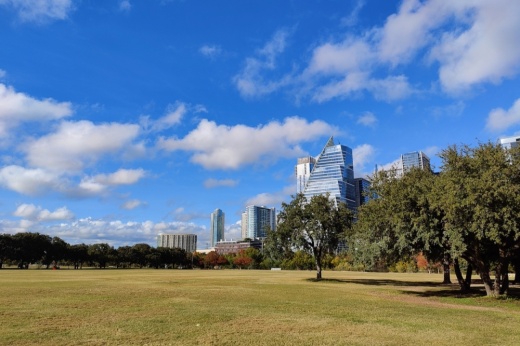The background
Since the 1980s, new residential construction in Austin has been required to help grow the city’s parks network by providing either land or funding.
Parkland dedication has traditionally been managed at the city level to keep pace with population growth and the increased recreational demand brought by new development. Over the years, Austin has received tens of millions of dollars’ worth of pocket parks, trail upgrades, playgrounds and other public installations through the system.
House Bill 1526, requiring Texas cities with at least 800,000 residents to update their parkland dedication processes, became law this spring. The changes must be in effect in those cities including Austin by the start of 2024, prompting recent review at City Hall.
What happened
Austin City Council voted to advance new parkland dedication policies imposed by HB 1526 during their Nov. 30 meeting, including:
- Limiting parkland dedication requirements for residential developments
- Adjusting the dedication process for larger projects and those with hotel or motel units
- Banning the extension of the city's dedication process to commercial developments, an update enacted by council last year
The new dedication requirements also vary based on location. Development outside the MoPac-US 138-Hwy. 71 boundary will have to add the most parkland or fees-in-lieu under the new rules, while projects around downtown and the surrounding urban core will have lower requirements.
“Your park level of service will go down quite significantly in those urban and [central business district] areas," Parks Department Planner Robynne Heymans told council during an October briefing.

"We have to do this, but this is just part of an absolute overreach by our state government to regulate how we can provide access to our parks in our community, and I can't countenance it with a 'yes' vote," she said.





